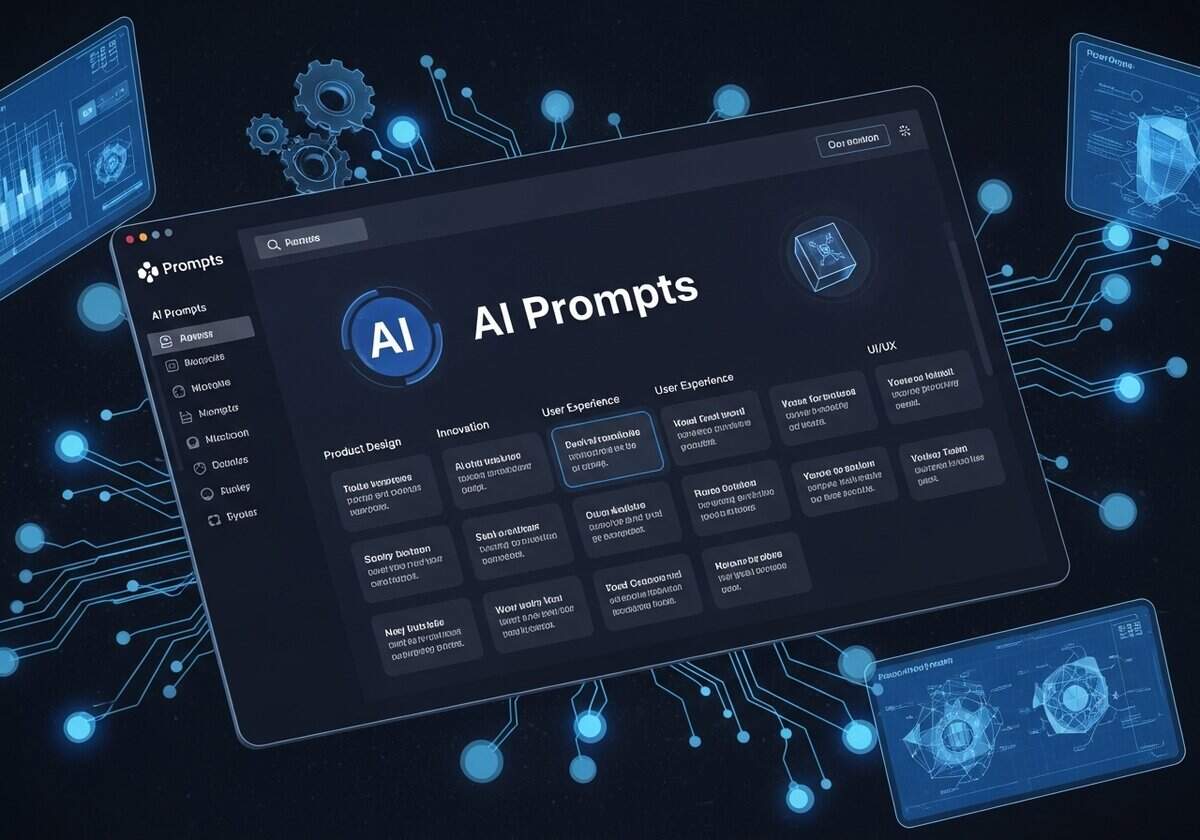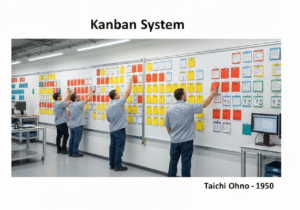Simply the Biggest AI Prompts Directory Specialized in Product Design and Innovation

Welcome to the world’s largest AI prompts directory dedicated to advanced product design, engineering, science, innovation, quality, and manufacturing. While online AI tools are rapidly transforming the engineering landscape by augmenting human capabilities, their true power is unlocked through precise and expertly crafted instructions. This comprehensive directory provides you a collection of such prompts, enabling you to command AI systems that can process vast amounts of data, identify complex patterns, and generate novel solutions far more efficiently than traditional methods.
Discover and fine tune the exact prompts needed to leverage online AI agents for optimizing your designs for peak performance and manufacturability, accelerating complex simulations, accurately predicting material properties, and automating a diverse range of critical analytical tasks.
The advanced search filters allow fast access to this extensive directory and cover the full spectrum of modern engineering.
Given the server resources and time, the prompts themselves are reserved to registered members only, and not visible below if you are not logged. You can register, 100% free:
- Code Generation and Debugging
AI Prompt to Debug VHDL State Machine Code Snippet
- Design for Manufacturing (DfM), Design Optimization, Failure Mode and Effects Analysis (FMEA), Finite Element Method (FEM), FPGA, Quality Assurance, Quality Control, Validation, Verification
This prompt analyzes a provided VHDL code snippet for a Finite State Machine (FSM) and a description of an observed incorrect behavior or error message. The AI should identify potential issues such as state transition errors output logic faults race conditions or syntax problems and suggest corrections. This aids in FPGA/ASIC development.
Output:
- Text
- does not require live Internet
- Fields: {vhdl_code_snippet} {fsm_description_and_ports} {observed_problem_or_error_message} {target_fpga_family_optional}
- Best for: Identifying and suggesting fixes for common errors in VHDL FSM implementations helping engineers debug designs for FPGAs or ASICs more efficiently.
- Data Generation or Augmentation
AI Prompt to Generate Synthetic ADC Noise CSV
- Digital Twin, Machine Learning, Quality Assurance, Quality Control, Signal Processing, Simulation, Testing Methods
This prompt generates a CSV dataset of synthetic Analog-to-Digital Converter (ADC) output codes incorporating various noise types. Users specify ADC resolution signal level and characteristics of quantization noise thermal noise and 1/f noise. This is useful for testing digital signal processing algorithms.
Output:
- CSV
- does not require live Internet
- Fields: {adc_resolution_bits} {num_samples} {noise_parameters_json} {dc_signal_level_percent_fs}
- Best for: Creating realistic ADC output data with controlled noise characteristics for simulating and testing DSP algorithms filter performance or ADC modeling without needing hardware.
- Information Extraction
AI Prompt to Extract Algorithm Details Research Paper
- Control Chart, Machine Learning, Performance Tracking, Process Improvement, Quality Management, Research and Development, Signal Processing, Statistical Analysis
This prompt analyzes the text of a research paper focusing on a specific signal processing or control algorithm. It extracts key details such as the algorithms steps mathematical formulation performance metrics reported and implementation notes. The output is a structured text summary.
Output:
- Text
- does not require live Internet
- Fields: {research_paper_text} {algorithm_name} {sections_to_focus_on_list}
- Best for: Efficiently understanding the core aspects of a new or complex algorithm presented in a research paper without reading the entire document useful for feasibility studies or implementation planning.
- Troubleshooting and Diagnostics
- Electrical engineering
AI Prompt to Interpret SCADA Alarm Logs for Root Cause Analysis
- Electrical Engineering, Failure Mode and Effects Analysis (FMEA), Predictive Maintenance Algorithms, Process Improvement, Process Optimization, Quality Control, Quality Management, Root Cause Analysis, Smart Grid Demand Response
This prompt processes SCADA alarm log extracts to cluster alarms temporally and logically to infer root causes and suggest preventive maintenance actions for electrical grid equipment.
Output:
- Markdown
- does not require live Internet
- Fields: {scada_alarm_log_text}
- Best for: SCADA alarm pattern recognition and fault cause summarization
- Data Generation or Augmentation
- Electrical engineering
AI Prompt to Expand Power System Fault Cases Dataset
- Machine Learning, Predictive Maintenance Algorithms, Process Improvement, Quality Management, Renewable Energy, Risk Analysis, Simulation, Sustainability Practices
This prompt creates new, realistic fault case scenarios with varied parameters (fault type, location, duration) based on an existing power system faults dataset to assist in machine learning model training or stress testing.
Output:
- JSON
- does not require live Internet
- Fields: {power_faults_dataset_json} {number_of_new_cases}
- Best for: Augmenting fault datasets for power system simulations or ML training
- Data Generation or Augmentation
- Electrical engineering
AI Prompt to Generate Synthetic Sensor Noise Data
- Artificial Intelligence (AI), Machine Learning, Quality Assurance, Quality Control, Sensors, Signal Processing, Simulation, Statistical Analysis
This prompt generates synthetic noise data matching the statistical characteristics (mean, variance, distribution type) of the input sensor noise dataset for augmenting sensor signal measurements in electronic experiments or simulations.
Output:
- CSV
- does not require live Internet
- Fields: {sensor_noise_data_csv} {desired_number_of_points}
- Best for: Creating synthetic noise data sets for sensor analysis
- Data Generation or Augmentation
- Mechanical engineering
AI Prompt to Generate Synthetic Stress-Strain Curve Data
- Alloys, Finite Element Method (FEM), Materials, Mechanical Engineering, Mechanical Properties, Metallurgy, Product Development, Simulation, Stress Corrosion
This prompt generates synthetic stress-strain data points for a hypothetical metallic alloy based on key mechanical properties. It’s useful for creating illustrative datasets for FEM pre-processing or educational purposes when actual experimental data is unavailable. Output is in CSV format.
Output:
- CSV
- does not require live Internet
- Fields: {alloy_name} {ultimate_tensile_strength_mpa} {yield_strength_mpa} {elongation_at_break_percent}
- Best for: Creating plausible material behavior datasets for simulations or educational examples when specific experimental data is lacking.
- Information Extraction
- Mechanical engineering
AI Prompt to Compile Standard Component Dimensions Table
- Design for Additive Manufacturing (DfAM), Design for Manufacturing (DfM), Fasteners, Materials, Mechanical Engineering, Product Design, Product Development, Quality Assurance, Quality Control
This prompt assists in extracting and tabulating standard dimensions for common mechanical components (e.g., bolts, bearings, pipes) from a provided text snippet of an engineering handbook or a relevant webpage URL. The goal is to get a structured table of these dimensions. The output is a Markdown table for easy readability.
Output:
- Markdown
- does require live Internet
- Fields: {handbook_section_text_or_URL} {component_name} {dimension_headers_list}
- Best for: Creating quick reference tables of standard component dimensions from reference materials, useful for design and drafting.
- Information Extraction
- Mechanical engineering
AI Prompt to Extract Failure Modes from Research
- Corrosion, Design for Additive Manufacturing (DfAM), Design for Manufacturing (DfM), Failure analysis, Failure Mode and Effects Analysis (FMEA), Maintenance, Mechanical Engineering, Quality Management, Risk Analysis
This prompt is designed to scan research paper text or a publicly accessible research paper URL for mentions of specific failure modes in mechanical components or systems. It will list the identified failure modes and the context or causes attributed to them. This helps in quickly gathering intelligence on common or novel failure mechanisms.
Output:
- Markdown
- does require live Internet
- Fields: {research_source_text_or_URL} {component_type} {failure_keywords_list}
- Best for: Aggregating knowledge on failure mechanisms from technical literature to inform design, material selection, or maintenance strategies.

































No one discussing the potential bias in AI selection for these directories? AI isnt immune to prejudices, folks.